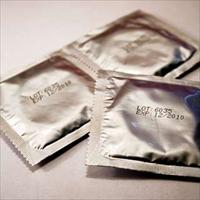SOUTH AFRICA: Paying for protection - rising condom sales

Condom sales in South Africa have climbed by as much as 55 percent in the last year, pointing to increased condom usage - but does this mean that behaviour has changed?
Health officials and researchers said it was too soon to tell if HIV-prevention messages had really filtered through and were having the impact they were supposed to have on people.
Dave Glass, general manager of ACDOC, which distributes a range of condoms, including the upmarket Contempo, commented: "We've seen a 50 percent increase in sales, which is probably a combination of marketing activities together with the AIDS message finally filtering through to consumers."
Jo Giles, spokesperson for competitor Durex SA, said the company had experienced about 35 percent growth in sales.
Glass said a combination of messaging, marketing and scandal could be pushing up sales. In late August 2007, the South African government recalled more than 20 million of its Choice condoms, which are distributed free, after reports that a testing manager at the South African Bureau of Standards, the body responsible for quality assurance, had accepted a manufacturer's bribe in return for certifying defective condoms.
Improved sales of ACDOC's lower-priced Lifestyle brand (US$1.50 for three) could be a sign that people were willing to pay for protection in the wake of the government's free condoms being recalled: "Maybe people are sceptical of free giveaways and are looking to trade up," Glass said.
Director of the non-governmental organisation, Centre for AIDS Development, Research and Evaluation (CADRE), Dr Warren Parker, said the recall threatened to undermine what had been a strong condom prevention campaign by government.
Sibongile Vilakazi, research manager of the Society for Family Health (SFH), a social marketing organisation, said studies showed that about 80 percent of South Africans were using condoms, but only 62 percent were using them consistently.
The catch?
For some, like hair stylist Mapitso Hlaodi, 27, the scandal marked the end of government condoms on the bedside table. "I used them all the time due to the fact I thought they were stronger because they were free. I mean, I'd been using them for three years and only two broke," she said. "No more."
According to David Nowitz, marketing manager of SFH, the loss of confidence in the government's prophylactics is also thought to have partially pushed up sales of the Lovers Plus and Trust condoms it distributes by 55 percent last year.
Repackaging Lovers Plus, combined with a TV campaign launched about a year and a half ago, also affected SFH's lower-priced Trust condoms, translating into 50 percent sales growth for this brand in the first half of 2007. With such a high base, Nowitz said, "In the second half of the year, we expected to see a growth of about 30 percent but we grew by 55 percent."
He attributed the unexpected growth largely to people looking for alternatives to government condoms as a result of the recall. SFH sold about 31 million condoms in 2007, about 2 million more than it had anticipated.
Nowitz and health department spokesperson Charity Bhengu both cautioned that it was too early to tell whether increases like these were due to behaviour change, or whether or not they were the very profitable fallout - for some - of a scandal.
 Back and Next - Back and Next
Back and Next - Back and Next See Also - See Also
See Also - See Also